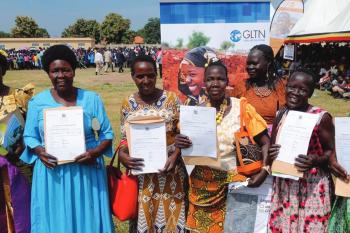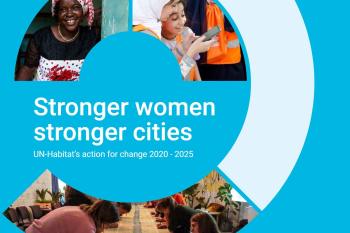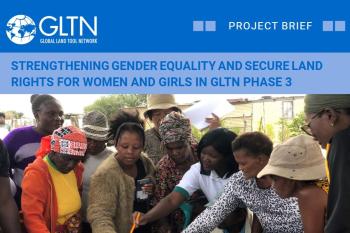
Read More
Gender Strategy for Land-at-Scale Uganda
Women’s Land Rights (WLRs) are fundamental human rights, foundational to gender equality and women’s dignity and instrumental in improving food security, effective climate action, poverty eradicati

Non-state actors are non-sovereign entities that exercise significant economic, political, or social power and influence at a national, and in some cases, international level.
This guide outlines the factors that influence the set up and effective operation of a non-state actor mechanism in the land sector, particularly during a land reform process. Non-state actors (NSA) for the purpose of this guide include civil society organizations, the private sector and professional associations.
A land sector non-state actor (LSNSA) mechanism is a means by which a group of NSAs coordinates their interventions and support to enhance their impact in the land sector, particularly during land reform processes.
The guide is not intended to be a blueprint for a non-state actor mechanism, but it is expected to provide viable ways to establish such a mechanism and to inform decision-makers engaged in the land sector, including national governments, bilateral and multilateral implementing agencies, about LSNSAs and their value-adding in land reform processes.

Women’s Land Rights (WLRs) are fundamental human rights, foundational to gender equality and women’s dignity and instrumental in improving food security, effective climate action, poverty eradicati

This publication presents a summary of UN-Habitat’s gender equality impact over the past five years, in line with the Beijing reporting cycle.

GLTN’s institutional commitment to gender equality and secure land rights for women and girls has been at the core of its work since inception in 2006.